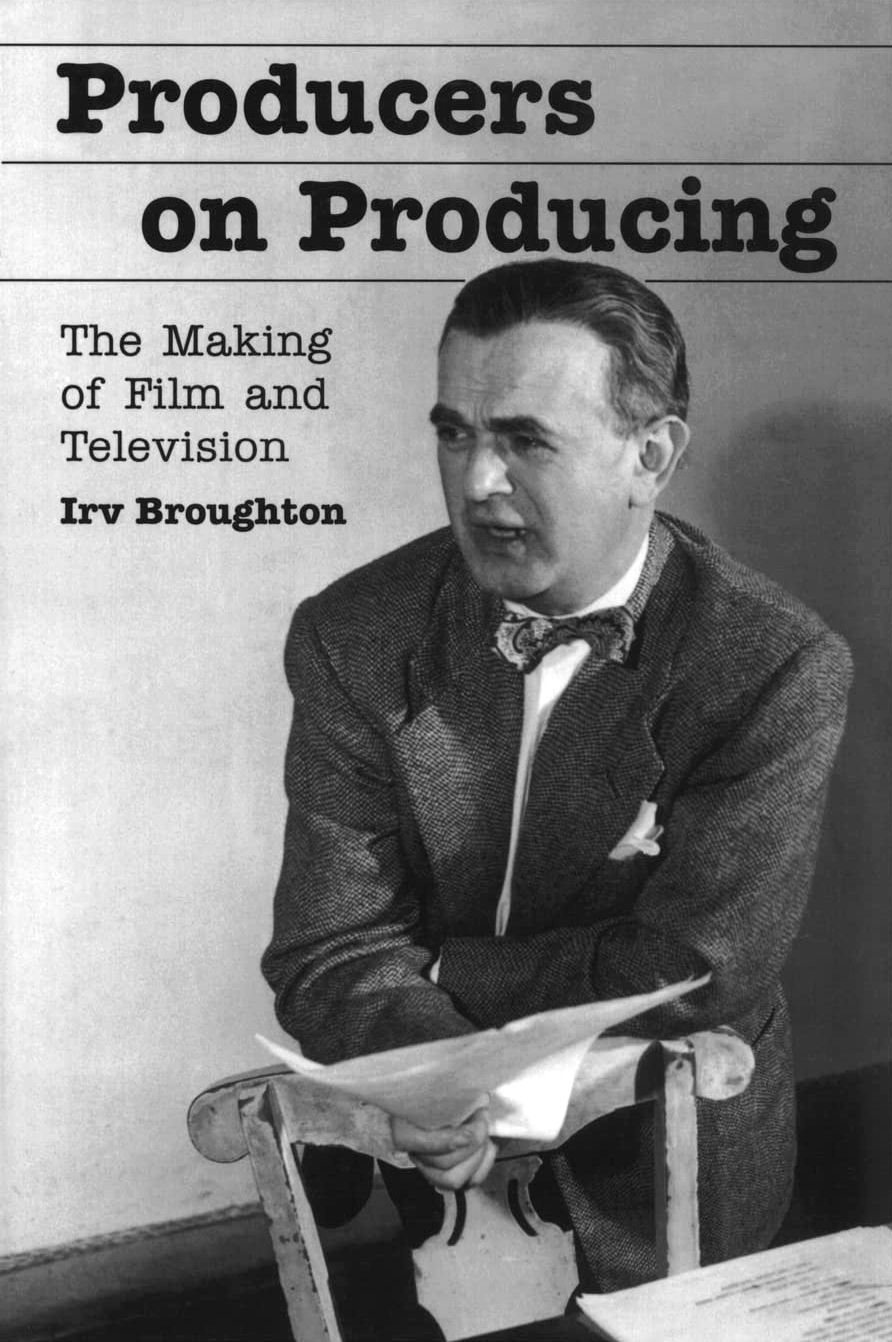 Story: Interviewer Irv Broughton conducts Q&A style interviews with a wide variety of television and television film producers from diverse corners of the medium, from documentarians to news producers to mainstream miniseries and series producers, trying to find out what made their biggest successes in the business work.
Story: Interviewer Irv Broughton conducts Q&A style interviews with a wide variety of television and television film producers from diverse corners of the medium, from documentarians to news producers to mainstream miniseries and series producers, trying to find out what made their biggest successes in the business work.
Review: A book of Q&A interviews with a various of interview subjects is a bit of an odd duck – did the credited author, who conducted the interviews, write the book, or did the people he interview do the majority of the writing with their answers? And yet it’s an interview format that leaves any editorialization or interpretation by the credited author off the table. The responses are what was said by the respondents, and the closest one gets to “slant” is the choice of the interviewer’s questions.
In the interests of disclosure, I happened upon this book in my role as the trivia researcher and co-host of Mission Log: Gene-ology, a Roddenberry Podcast. Since our show focuses on the early TV writing work of Gene Roddenberry, and a great deal of that early work was done for Ziv Television Programs, an early pioneer in syndicated television content, my search for more information on the inner workings of the Ziv organization led me to this book’s interview with that company’s founder, producer Frederick Ziv. But having examined that interview thoroughly, there was no way I was going to leave the rest of the book unread.
The book seems like media studies course fodder, but if you have even a passing knowledge of the history of TV as a medium, there’s a lot to love here. Broughton asks the questions and lets his interviewees give their answers without further interference. Some of the all-time greats are interviewed in this book, including animation superstar Chuck Jones, David L. Wolper, and Fred Rogers even leaves his neighborhood behind to talk about the course he charted through the nascent TV landscape. Producers of news programming, game shows, late night talk shows, and soap operas are given equal weight with no judgements made on how “culturally important” their particular slice of the schedule may or may not be. Broughton’s choice of interview subjects acknowledges that they’re all important to someone, and as such all deserve examination.
And some of the answers are truly curious, if not completely confounding. Two veterans of the news and documentary scenes are interviewed back-to-back; one thinks the medium of TV journalism is dying, the other things it’s thriving. Roy Huggins, a renowned TV creator who had to fight like hell against corrupt studio practices intended to deny him that credit, talks about creators of TV series being entitled to residuals from having created a show, and then in the same breath seems to complain bitterly that actors have a union and engage in collective bargaining at all. What did he think happened to get writers residuals? The studios didn’t make that concession from the goodness of their corporate hearts.
But those answers are, for better or worse, presented without further comment – only with follow-up questions, and the reader is free to draw their own conclusions. It’s a very objective process, and a valuable peek into the state of TV between the 1950s and the 1980s, giving much-needed insight into what some of the pioneers of the medium (many of whom are no longer with us) thought and felt without the author’s own feelings get in the way. If you’re a student of TV history, this is a must read.
Year: 1986
Author: Irv Broughton
Publisher: MacFarland
Pages: 308

